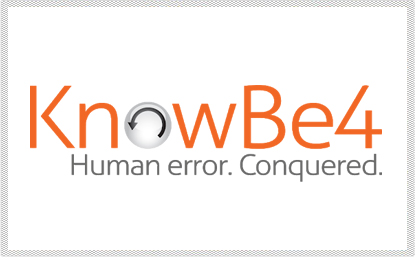We had a massive localization project to achieve, and Ulatus far exceeded our expectations. Your team essentially developed 33 different courses with accuracy and cultural sensitivity. We appreciate your dedication to bringing this project to fruition.

KnowBe4 was founded on the principle that the human side of the cyber security industry is severely neglected. With no national security strategy in place to protect against cyber-attacks on private organizations, small and medium enterprises are completely on their own. Although countless antivirus suites are available for protection against malicious threats and zero-day exploits, their efficacy is severely lacking; unfortunately, antivirus programs are only a component of a truly effective network security strategy.
KnowBe4 provides its clientele, including major banks and financial institutions, with a robust solution for cyber security. From its user-friendly and intuitive platform, customers can gain access to unique features, such as Advanced Reporting, the powerful Smart Groups, new Virtual Risk Officer, and its Automated Security Awareness Program, to create a fully mature, customizable program. Additionally, KnowBe4’s clients have the benefit of using the company’s powerful Active Directory Integration for easy and fast user management.
As part of its strategy, KnowBe4 decided to localize its e-learning courses and quizzes into multiple languages. Since this was the first time that the company was embarking on such a massive localization project, it needed to find the right partner to achieve the best possible results; that is when it connected with Ulatus.
Ulatus was charged with localizing the learning modules to 33 languages without changing the effective delivery of the content. To achieve the mandates of the project, we needed to successfully synchronize audio, video, and text with deep localization so that a trainee could relate to the real-life situations being presented in the training modules. As such, the client wanted us to take complete control of the entire project, including translating the content, developing voiceovers using apt artist, synchronizing all the content and media files, and delivering a final localized course.
Since this is a client-facing service for KnowBe4, the company’s reputation was at stake. Therefore, each word and every slide had to create an impact and fulfill the purpose of making the training feel relatable and interactive. As a result, the client expected top-notch quality within clearly defined timelines.
Part of the project involved localizing numerous images to suit the target language. To achieve this goal, our desktop publishing (DTP) team had to format each image for production in the target language; in some cases, the team had to recreate the images. For Instance, special care had to be given when working with certain languages, such as Arabic and Hebrew, which follow the RTL writing system. The images of this language pair had to be completely recreated to follow their writing system. Additionally, quality checks for typesetting and DTP for all languages had to be strictly followed.
With a project of this size, numerous teams have to coordinate their efforts, including the project manager, translators, the audio and video recording and editing team, DTP and formatting experts, the quality auditor, and the client. Part of the coordination included us sharing weekly reports with the client to update them on every aspect of the project in detail.
A dedicated project manager was assigned to the client to coordinate with multiple stakeholders to ensure that all quality standards and expectations were being met. The project manager’s role included overseeing the localization and accommodating last-minute revisions from the client, as well as planning, strategizing, adhering to deadlines, and overcoming any challenges that came up, especially considering the different service requirements.
Selecting the best, most highly skilled linguistic team members for all 33 languages was crucial to the success of the project. To accomplish this, potential linguists had to go through a rigorous testing and selection process.
By working with numerous tools, including Adobe InDesign, Photoshop, and Illustrator, our in-house DTP team was able to ensure that the translated output was formatted the same as the source English content. Since every slide in the course had images that needed to be formatted, translated, or localized, it was imperative to build in enough time for our visual design experts to work with each section of the courses.
Understanding and choosing the best authoring tool is one of the most critical aspects of e-learning localization. With this in mind, we chose to use Articulate Storyline 360 to ensure that we could create the best product for our client.
By using agile localization, we are able to make certain that constant and rigorous quality checkpoints are met at every step of the process, especially since there were numerous departments involved with the project. The agile process helps us to connect each part of the project and maintain efficient communication across all teams, as well as with the client.